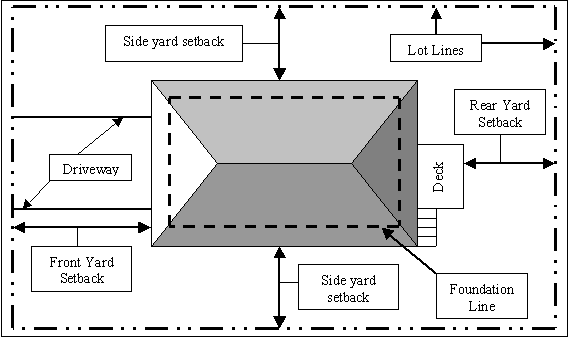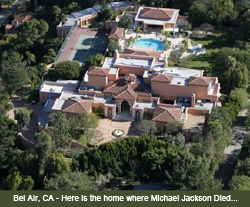How the Courts Interpret “Relative Hardship Doctrine”
Here’s an interesting case…
California courts have often applied the “relative hardship doctrine” in determining whether to grant an injunction to enjoin a trespass by encroachment on an adjoining landowner’s property.
Under this doctrine, after the court has determined that a trespass has occurred, the court conducts an equitable balancing procedure to determine whether to grant an injunction prohibiting the trespass, or whether to award money damages instead.

In the case of Hirshfield v. Schwartz, 91 Cal App 4th 749 (2001) – Using the relative hardship” doctrine, the courts considered three factors:
- Whether the encroaching neighbor innocently / mistakenly placed the encroachment,
- Whether the encroaching neighbor would suffer significant injury if forced to move / demolish the encroachment,
- Whether ordering the moving / removal of the encroachment would create a disproportionately greater hardship on the encroaching neighbor than on the adjacent homeowner if the encroachment were allowed to remain.
If an encroachment was innocently erected, and it is determined that it would then be extremely difficult or extremely costly to move / remove and (the court determines) the encroachment is causing little if any inconvenience to the adjacent property owner, the court may then allow the encroachment to remain (temporarily or permanently) and award the adjacent landowner monetary damages for the loss of use and enjoyment of their property because of the encroachment.
 In the oft-quoted Hirshfield case, the plaintiff and defendant owned adjoining parcels in Bel Air, California – an upscale residential suburb in Los Angeles County. The Hirshfields were two elderly sisters who, since about 1940, had lived on a large lot of almost three-quarters of an acre. The Schwartzes bought the adjoining lot of nearly an acre in 1979. Prior to the Schwartzes’ 1979 purchase, back in the mid-1950s the Schwartzes’ predecessor had built a swimming pool and had a chain link fence erected down part of what was presumed to be the property line.
In the oft-quoted Hirshfield case, the plaintiff and defendant owned adjoining parcels in Bel Air, California – an upscale residential suburb in Los Angeles County. The Hirshfields were two elderly sisters who, since about 1940, had lived on a large lot of almost three-quarters of an acre. The Schwartzes bought the adjoining lot of nearly an acre in 1979. Prior to the Schwartzes’ 1979 purchase, back in the mid-1950s the Schwartzes’ predecessor had built a swimming pool and had a chain link fence erected down part of what was presumed to be the property line.
Following the 1979 purchase, the Schwartzes extended the chain link fence down the presumed property line and proceeded to build a waterfall, a koi pond, a stone deck, a putting green and a sand trap, as well as a cinder block wall.
Next door the Hirshfields maintained a garden that had become what was called “a botanical showplace” with a variety of exotic plants and trees.
 In 1997 the Hirshfields conducted a survey that revealed two sections of the property being used by the Schwartzes were actually owned by the Hirschfields. The survey also revealed that a portion of the Hirschfield garden actually was straddling the property line and on the Schwartz property. The Hirschfields sued for a quiet title action, including trespass, and declaratory relief. The Schwartzes defended on several bases, including the existence of “an easement by prescription or otherwise.”
In 1997 the Hirshfields conducted a survey that revealed two sections of the property being used by the Schwartzes were actually owned by the Hirschfields. The survey also revealed that a portion of the Hirschfield garden actually was straddling the property line and on the Schwartz property. The Hirschfields sued for a quiet title action, including trespass, and declaratory relief. The Schwartzes defended on several bases, including the existence of “an easement by prescription or otherwise.”
In the Hirshfield case, the court did not compel Schwartz to immediately remove his encroachments, but allowed the encroaching improvements to remain until Schwartz either moved or sold his residence and in addition, ordered Schwartz to pay Hirschfield $23,000.00 for the fair market value of 800-S/F of land he was encroaching upon. The court determined that the defendant neighbor had a right of use but not ownership in what is called an “equitable” easement.
If you have an easement concern on your property or a property adjoining your property you can often solicit a no-cost consultation with a Real Estate Attorney that will answer many of your questions and provide you some possible choices you can explore to best remedy the situation.
The information on this Real Estate BLOG is for general information purposes only. Nothing on this or associated pages, documents, comments, answers, emails, or other communications should be taken as legal advice for any individual case or situation. The information on this website is not intended to create, nor constitute an attorney-client relationship.
Call us - We are here to Help!
(213) 984-1218 Let's talk through your issue or opportunity. We Are Your Los Angeles Real Estate Attorneys...We serve
individuals and businesses
in Los Angeles County.
